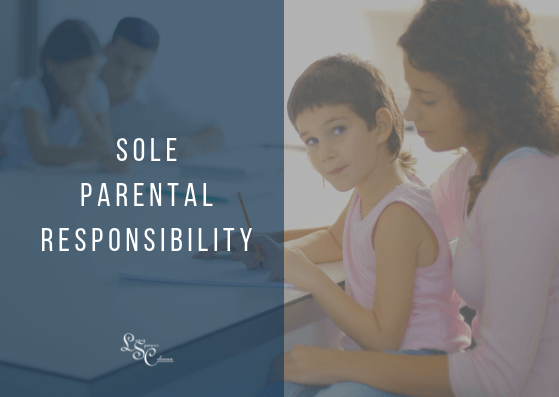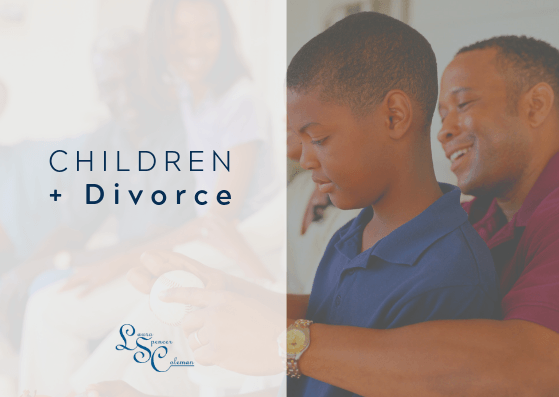CHILD CUSTODY
PROTECTING YOUR PARENTAL RIGHTS
The concepts of child custody and visitation once existed in Florida. However, they have been since replaced by the principles of time sharing and parental responsibility.
In making time-sharing determinations, legal courts usually begin with the presumption that time sharing will be divided equally between the parents. Each party is then given an opportunity to present reasons why this presumption should be altered. Florida courts make time-sharing determinations based on the best interests of the child.
These courts are required to consider many statutory factors when making a decision. Those factors can include any or all of the following:
- Each parent’s capacity to provide care for the child, honor the time-sharing schedule and be reasonable when changes are unavoidable
- The anticipated division of parental responsibilities
- Each parent’s ability to determine, consider, and act upon the needs of the child as opposed to the needs or desires of the parent
- The length of time the child has lived in a stable, satisfactory environment and the desirability of maintaining continuity
- The geographic viability of the parenting plan
- The moral fitness of the parents
- The mental and physical health of the parents
- The home, school, and community record of the child
- The reasonable preference of the child, if the court deems the child to be of sufficient intelligence, understanding, and experience to express a preference
- Each parent’s ability and willingness to remain informed regarding the child’s friends, teachers, medical care providers, daily activities, and preferences
- Each parent’s ability and willingness to provide a consistent routine for the child regarding discipline, homework, meals and bedtime
- Each parent’s communication the other parent and willingness to adopt a unified front on all major issues when dealing with the child
- Evidence of domestic violence, sexual violence, child abuse, child abandonment, or child neglect
- Evidence that either parent has knowingly provided false information to the court regarding any prior or pending action regarding domestic violence, sexual violence, child abuse, child abandonment or child neglect
- The particular parenting tasks customarily performed by each parent and the division of parental responsibilities, including the extent to which parenting responsibilities were undertaken by third parties
- Each parent’s involvement in the child’s school and extracurricular activities
- Instances of substance abuse
- The capacity and disposition of each parent to protect the child from the ongoing litigation as demonstrated by not discussing the litigation with the child, not sharing documents or electronic media related to the litigation with the child, and refraining from disparaging comments about the other parent to the child
- The developmental stages and needs of the child and each parent’s ability to meet the child’s developmental needs
- Any other factor that is relevant to the determination of a specific parenting plan, including the time-sharing schedule
TIME SHARING AND PARENTAL RESPONSIBILITY
The term “parental responsibility” refers to the parent who will make major decisions affecting the health, education and welfare of the child. As with time sharing, courts begin with the presumption that parental responsibility should be divided 50-50 between the parents unless the court finds that shared parental responsibility is not in the child’s best interests. In that circumstance, the court may order sole parental responsibility to best protect the child.
If you are a military service member, you have the same time-sharing rights as any other parent. We can help you understand how time sharing will work, considering the possibility of future deployments or service responsibilities.
ADVOCATING FOR THE BEST INTERESTS OF YOUR CHILD
With most divorcing couples, the well-being of their shared children is their greatest concern. While both parents want what is best for their child, each parent's ideas about how to parent effectively can be very different. Time sharing and parental responsibility disputes can be extremely emotional and contentious, and studies have shown that prolonged custody disputes can be very detrimental to a child’s psychological health.
At the Law Office of Laura S. Coleman, P.A., we focus on minimizing the conflict and finding workable solutions that will provide peace and stability for the entire family. We are often successful at using mediation and negotiation to facilitate out-of-court settlement of time sharing and parental responsibility disagreements.
For complex cases involving concerns of domestic violence or abuse, we are prepared to go to court to strongly advocate for the parenting arrangement that best protects your child’s well-being. With more than 15 years of legal experience, lawyer Laura S. Coleman has a long history of helping clients accomplish their goals in child custody and other family law matters.
To schedule a consultation with a skilled family lawyer, call the law office of Laura S. Coleman, P.A., locally at 850-665-3008
or toll free at 888-508-7953. We look forward to speaking with you.
LEARN MORE ABOUT CHILD CUSTODY IN FLORIDA
CONTACT US
If you need guidance on a legal issue confronting your family,
Laura Spencer Coleman is here for you.
Contact us online, or call
(850) 626-8520
to schedule an initial consultation to discuss your situation. Laura has more than 15 years of experience serving clients with family legal matters.






